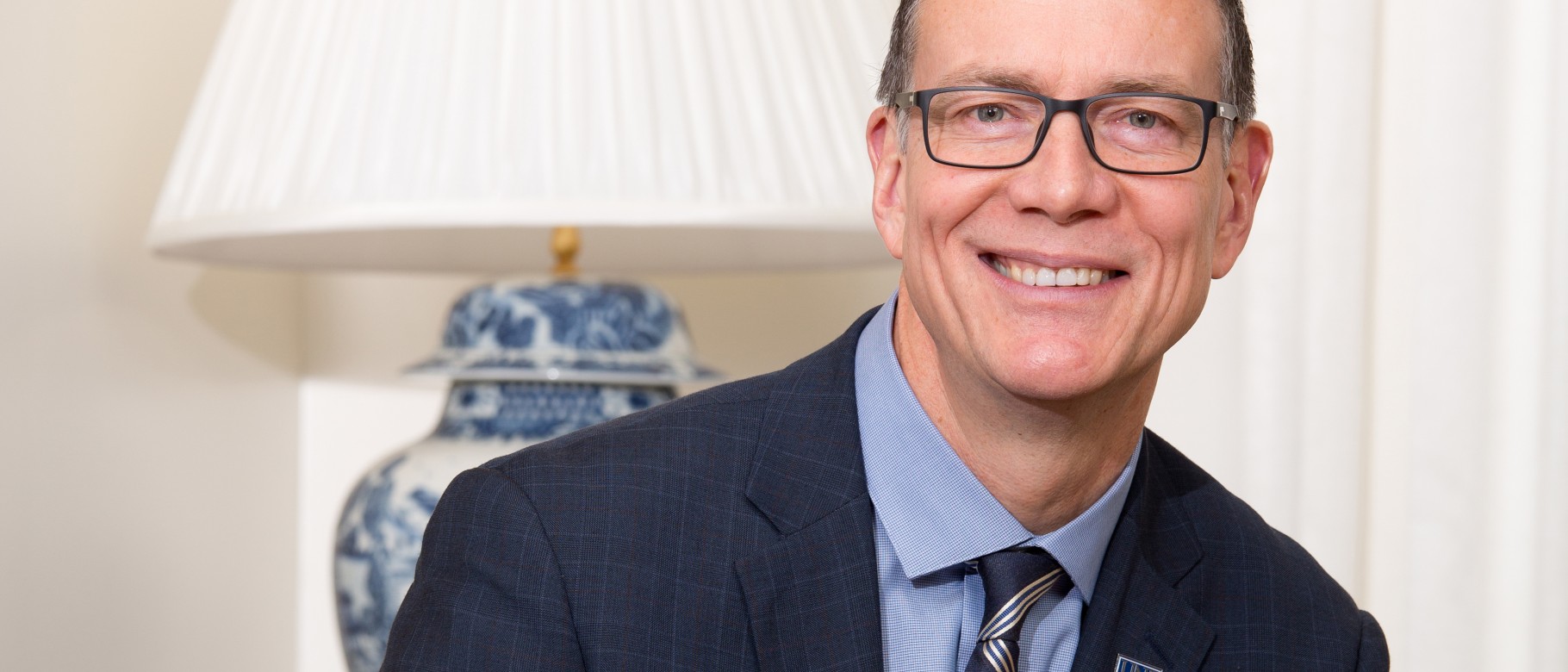UNE President James Herbert publishes op-ed in ‘Trusteeship Magazine’ on lost opportunities in the academic search process

University of New England President James Herbert, Ph.D., wrote an op-ed that was published in the January–February issue of Trusteeship Magazine, a publication that reports on trends, issues and practices in higher education.
Titled “A Lost Opportunity in Academic Searches,” the piece recounts the typical process, well-known to university administrators and board members, of the search for the right candidate for a senior academic position. As part of its description of the winnowing of prospective candidates, the piece notes the “airport interviews” as well as the meetings with various stakeholders and the presentations to faculty, professional staff and students, for which countless hours of preparation are spent by job seekers.
But Herbert adds his personal perspective -- both as an administrator who has participated in many search committees and, most recently, as the (ultimately successful) candidate for a university presidency. He candidly reports that after securing the job, he looked back on the search process and only then grasped the extent to which the University had wasted several occasions to learn valuable information. “Once the transition was underway and I had a chance to reflect on the process, I realized that my new colleagues and I had squandered an extraordinary opportunity,” he writes.
Herbert laments the fact that in the usual course of things, academic search committees do nothing to preserve the collective insights of those candidates who do not succeed in getting the job. As highly intelligent, experienced and qualified individuals, these candidates likely share key observations and thoughts about the institutions to which they are applying with the people who interview them — people who may forget these bright ideas as soon as their top pick signs on the dotted line.
While Herbert cautions that protection of candidate anonymity is paramount, institutions of higher education – especially because they are themselves beacons of collaboration and learning -- would greatly benefit from a "systematic process to collect … and memorialize key ideas of candidates.”
Obviously very pleased with the fact that he was chosen for the presidency, Herbert wishes that he now had the benefit of observations from his then-fellow candidates. “Such feedback would provide a check on my own impressions and might alert me to new opportunities I have yet to consider,” he writes. “No single individual can possibly have a monopoly on all the best observations and ideas.”